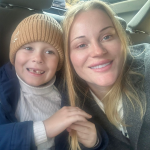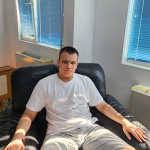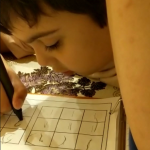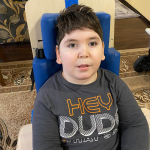Canistherapy for Autism
An autistic child has a disrupted emotional connection with the outside world and people; they prefer non-verbal connections, and that’s why it is so difficult to instill in them sociability and awaken the emotional component of family and friendly relationships. Treating autism with dogs (canistherapy) can help a child become more socially active. Dogs perceive people as they are; these animals are impartial and do not evaluate us by appearance or psychological characteristics.
Canistherapy for autism is useful because it reduces a child’s feelings of restlessness, anxiety, and fear and eliminates psychological tension. A sedentary child becomes more active. An autistic person also develops a sense of security — there is no negativity or frightening duplicity in dogs.
Canistherapy for autistic children is the optimal correction method because:
- Non-verbal communication with a four-legged friend develops sensory and emotional spheres and minimises negativity and stress.
- Treatment of autism with dogs instills trust because these animals are incorruptible; they sincerely enjoy interacting with their owner without being ordered.
- These animals have positive energy and transmit it to their owners during communication, play, and training. Even highly self-absorbed autists respond positively to this.
- Dogs provide emotional support, as though tuning into their friend’s ‘wave’.
- The results of communication with a dog are an excellent basis for the further development of an individual.
A dog friend can be considered a guide to an independent adult life. When a child finds a common language with their four-legged friend, cares for, trains, takes responsibility, and plays a certain social role, treatment of autism with the help of canistherapy has a positive effect on the patient’s socialisation.
At a primitive level, a dog helps the autistic child understand their responsibilities and rights and form an idea of themselves as an individual. The process of training an animal develops leadership qualities and teaches them to be an understanding and caring leader.
Results of using canistherapy for children with ASD:
- The psychological state of autists improves, and the brain relaxes from critical thinking and stress.
- The child feels the pet needs them, so they are no longer alone, and this feeling suppresses despair and fear.
- The beloved pet creates a desire for communication; this is excellent progress towards a socially active future.
- Communication with the dog develops motivation and inspiration.
- Canistherapy also develops attentiveness and patience.
The Mardaleishvili Medical Center offers a modern and more effective alternative to canistherapy — cellular correction of the autistic brain.
Stem cells are the basic building blocks of the human body. They can be obtained from umbilical cord blood or bone marrow from the baby’s ilium. This is an absolutely safe procedure, and the result of such a correction of childhood autism exceeds many expectations. Among the positive effects of treating childhood autism spectrum disorder are solving the problem of the disease’s development, having a powerful healing effect, and enhancing the results of other methods.
Book stem cell treatment for autism in children at the Mardaleishvili Medical Center — your child has the right to a healthy future!
Autism Treatment Center Videos
Autism treatment with own stem cells
Cord blood association congress
International Quality Crown
Autism Treatment Reviews
Autism treatment with own stem cells
The story of Alessandro (6 years old)
Autism Patient Testimonial - Stem Cell Treatment
Clients Testimonials

Feedback from Igor, David’s father (12 years old) Read More

Feedback from Olga, Fedya’s mother Read More

Feedback from Natalia, Radomir’s mother (15 years old) Read More

Feedback from Esther, Samuel’s mother (8 years old) Read More

Feedback from Abibe, Selim’s mother (7 years old) Read More












